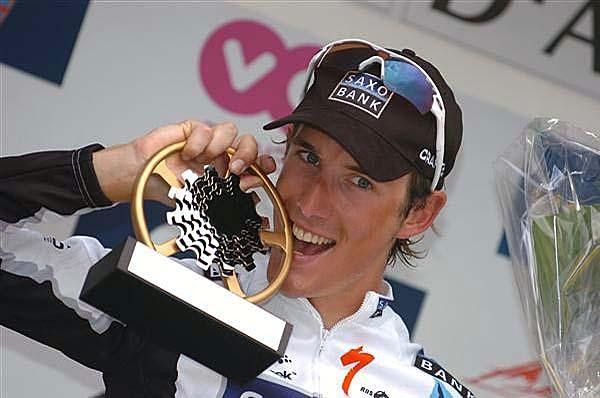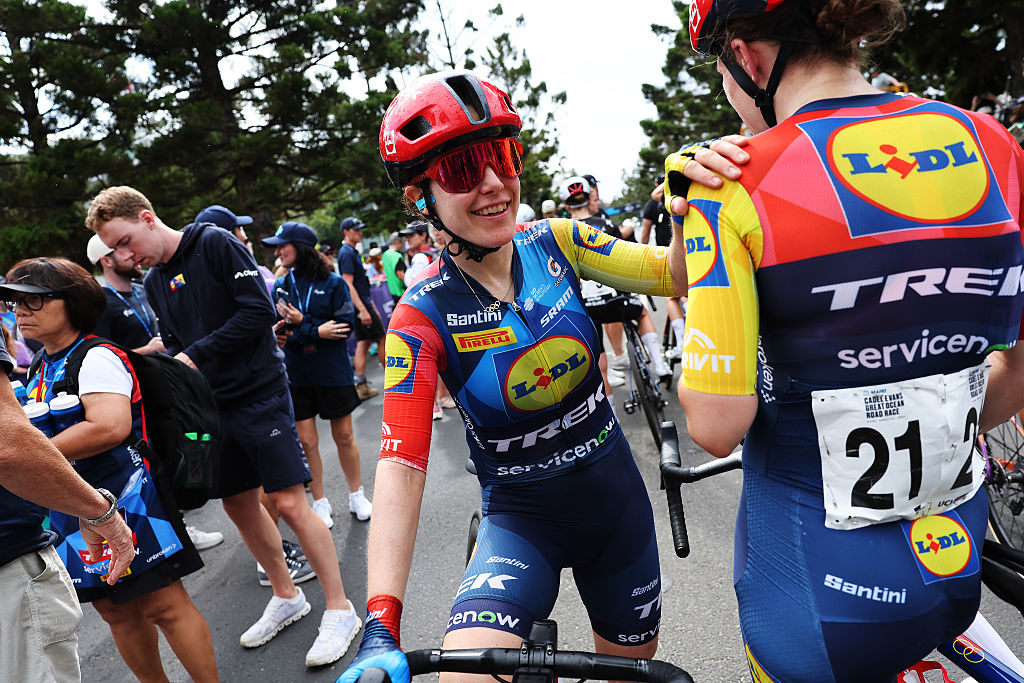Liège winner sending out an S.O.S.
Liège winner sending out an S.O.S.
The latest race content, interviews, features, reviews and expert buying guides, direct to your inbox!
You are now subscribed
Your newsletter sign-up was successful

Three days after my win in Liège-Bastogne-Liège and I'm sitting in the gutter, covered in dirt and grease. No, I've not been on a 72-hour celebratory binge. Instead I'm on a road outside Luxembourg with a crappy broken down car for company. It's raining, I'm cold and I can't even turn on the car heater to keep myself warm. Who said cycling is glamorous? Seriously, I'd like them to come out and offer me road-side assistance.
It's a totally different scenario to last Sunday, when I was standing on the top step of the podium for the first time in a major Classic – my favourite Classic – at Liège-Bastogne-Liège. Just saying it, writing it even, gives me goosebumps ... or maybe that's the onset of hypothermia.
But before I talk Liège, I should rewind and begin with the Amstel Gold. After Liège, Amstel is the race I have always wanted to win. It's one of the most beautiful races of the year and one that my brother has already won.
I'm sure you will have heard about my brother's crash. What you might not know is that he crashed twice, and after the first mishap he managed to get back up and rejoin the peloton. I can't explain what it's like when a sibling crashes. Of course it's bad when a teammate goes down, but when it's your brother it's very different.
The second crash was a lot worse and Fränk had to be taken to hospital. I didn't know he'd crashed until Nicki Sørenson came up to me and told me. Another rider quickly came up and said that he'd seen Fränk go down and that it didn't look good. I didn't know how to respond, I mean, what a great thing to tell me. What was I supposed to do with that gem of information?
Thankfully Bjarne [Riis] went with Fränk to the hospital, but I was quiet in the bunch for a long time. I was trying to listen out for any information that was coming over the radio and when I heard that he was okay it was a huge relief and meant I could concentrate on the race. Karsten Kroon and I were really strong and we took turns at attacking the field. He eventually got away which meant that I had to mark the moves from behind. He finished second, which was a good result for the team.
For a second you find yourself unable to react. Your brain scrambles as you try and focus on whether the name and number coming over the radio is correct, and of course you're travelling further away from where you really want to be. But after the first crash he came up to me and we talked for a few second. It was really reassuring and all seemed okay.
The latest race content, interviews, features, reviews and expert buying guides, direct to your inbox!
La Flèche Wallonne and Liège
Flèche is a race that demands respect. It's a hard race and it's one that so many riders want to win. Coming into it I knew that I had the form of my life but it was still nice when Kim Andersen asked everyone on the team to work for me. It put pressure on my shoulders but the team did a great job and they dropped me off at the bottom of the final climb in a great position. I almost got the job done but Rebellin had more punch in the sprint. However it gave me so much confidence leading into Liège.
That race went perfectly for me and everything just clicked into place. It's a special race but it's not one where you can attack ten times. If you launch yourself off the front it has to be a commitment that's unadulterated and total – you can't attack in half-measures as you'll be quickly found out.
Once I was away I had to keep my emotions in check. I knew that I had a gap and when I passed [Philippe] Gilbert I knew that I was going well. Putting it all into words is really hard though. Over the last five years I've worked so hard to get where I am. I've had to make so many sacrifices; put in hours of training; work for the team; give up so much, that it was a really emotional moment for me. I have to thank the team though. We've not really had much luck this year but we controlled the race perfectly.
That night Fränk and I travelled home and I saw my family and really close friends. We had a really short party and it was great to see everyone but the next day I was out on my bike time trial training with Fabian Cancellara. People have asked if a win like that will change me, but I don't think it will. The press were pretty quick at comparing me to Contador in the winner's press conference and asking me if the two of us were the favourites for the Tour. They can ask questions like that, I don't mind, but I know what I want and I know what I'm capable of, and if I stay the way I am and keep my feet on the ground I'll be okay.
So, what's next for me? Well, I'll take a bit of a break but then build my form back up and do a lot of time trial work. I can't slow down too much though as I'll still need to be in shape for the Tour of Switzerland. But right now I need to get home. It's getting dark, colder and my battery on my laptop is about to die. If anyone wants to come and pick me I'm on the….
Now just 23 years of age, Andy Schleck made a name for himself during the 2007 Giro d'Italia when he won the best young rider classification. The Luxembourger continued to impress in 2008, when he took the same jersey at the Tour de France while helping his squad to win the teams and general classification.
Schleck is the younger brother of Saxo Bank teammate Fränk. The pair's father, Johnny, also contested some of the world's largest cycling races including the Tour de France and Vuelta a España between 1965 and 1974.
The cycling world is expecting more big things from Schleck in 2009, and he'll be keeping you informed of his progress throughout the year on Cyclingnews.com.
* Index to all entries
